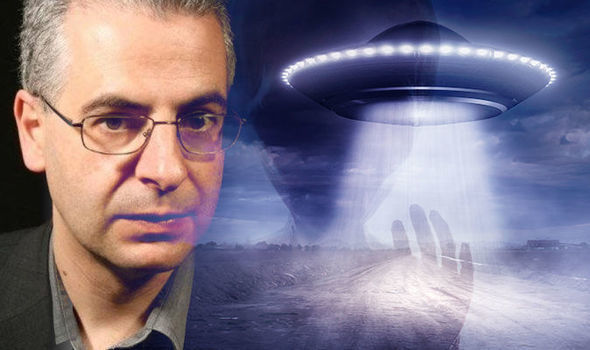THE US Government has stored away mystery metals thought to have come from UFOs that were visiting Earth, according to a former British MoD insider.
The AATIP was run by military intelligence official, Luis Elizondo, on the fifth floor of the Pentagon’s C wing.
Mr Elizondo resigned to form UFO research group To The Stars Academy with former Blink 182 singer Tom DeLonge.
The bulk of the money went to Bigelow Aerospace in Las Vegas, run by billionaire US businessman Robert Bigelow, who is also working with NASA to create a new expandable spacecraft.
However, no images have surfaced of the alleged material, nor have any details of where it was found, or any reports of tests carried out on it.
Ralph Blumenthal, one of the reporters who worked on the story, later clarified: “They have, as we reported in the paper, some material from these objects that is being studied so that scientists can find what accounts for their amazing properties, this technology of these objects, whatever they are.
“It’s some kind of compound that they don’t recognise.
“We printed as much as we were able to verify. Can’t go beyond that.”
After a number of claims about the accuracy of the report emerged, Nick Pope, who previously investigated the potential threat posed by UFOs for the British MoD, came forward to back the report’s claims.
Although his enquiries in the 1990s revealed no such threat existed, and no metals were found in the UK, he is convinced mystery metal is being stored in the US.
There are recovered “materials”, the full details of which have yet to be disclosed.
“Some of the personnel involved with this project came to believe some of the objects were extraterrestrial.
“There are recovered “materials”, the full details of which have yet to be disclosed.”
We asked Mr Pope how he could be so certain that the metals existed and were in storage.
He said: “As to how we know these alloys exist, there are two points.
“Firstly, Luis Elizondo has clearly told the New York Times and others about this aspect of the AATIP project.
“Secondly, the original New York Times article on December 16 states that the paper saw contracts relating to the project, maybe as a result of Freedom of Information Act requests, but possibly as a result of material having been passed to them by Luis Elizondo or by someone else associated with the project.
He described the New York Times fact-checking process as “meticulous.”
He added: “They were obviously very, very sure about this aspect of the story.
“As I’ve said previously, there are various tests that can be done on alloys, and clearly these tests will have been done.
“The results will be known. It’s just a question of whether the fact that these tests were done for AATIP but carried out by Bigelow Aerospace is sufficient to keep the results outside the scope of the US Freedom of Information Act.
“We don’t know how these alloys and other materials were obtained.
“We’re told they relate to UFOs, and if they come from some sort of military encounter, this is potentially very significant.
“However, we also know that Bigelow Aerospace acquired all sorts of UFO-related materials from civilian UFO research groups such as the Mutual UFO Network (MUFON).
Mr Pope said: “Imagine a scenario where a farmer sees a UFO over his cow pasture, and later found some bits of metal in the field.
“He assumes – maybe wrongly – that it’s connected with the sighting, and gives it to a UFO investigator.
Richard Sachleben, a retired chemist and member of the American Chemical Society’s panel of experts, is not convinced.
He told Live Science. “My opinion? That’s quite impossible.
“There are databases of all known phases [of metal], including alloys.
“There are no alloys that are sitting in some warehouse that we cannot figure out what they are.
“In fact, it’s pretty simple, and any reasonably good metallurgical grad student can do it for you.”
May Nyman, a professor in the Oregon State University Department of Chemistry, said the databases include straightforward techniques for identifying metal alloys.
He said If an unknown alloy appeared, it would be relatively simple to figure out what it was made of.
Source: Express.co

































Leave a Comment
You must be logged in to post a comment.